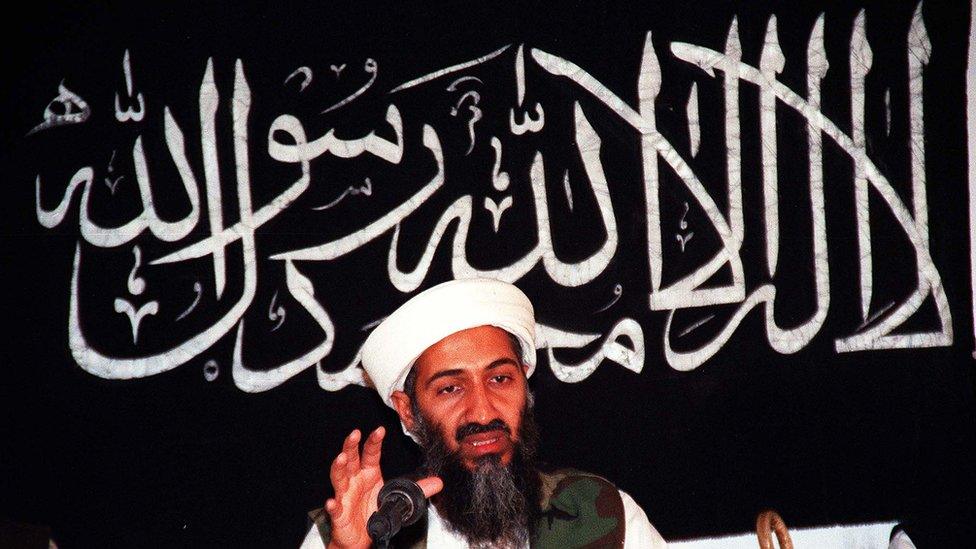Why al-Qaeda's star is rising
- Published
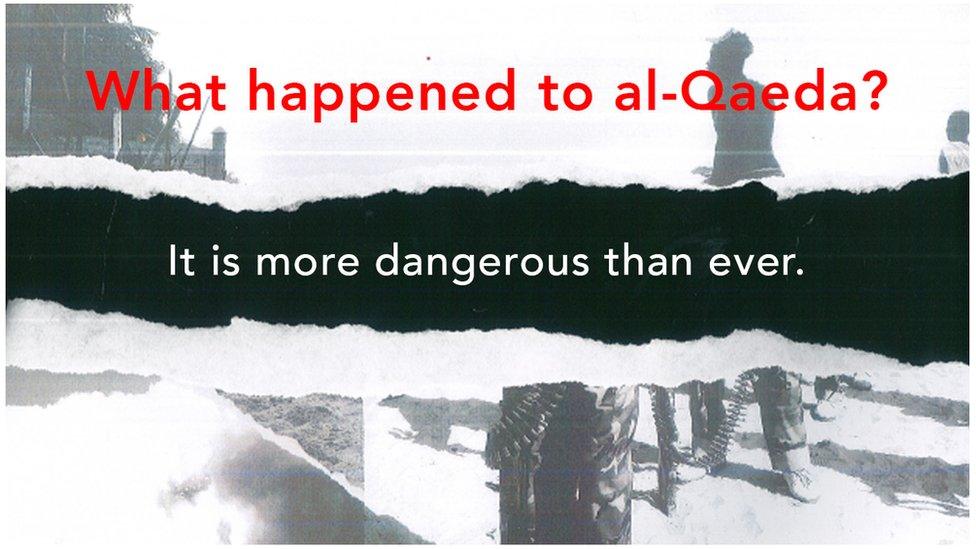
Barely out of the headlines a few years ago, al-Qaeda may now appear to have been eclipsed by so-called Islamic State - but, according to four of the world's leading experts on the organisation founded by Osama Bin Laden, it is more dangerous than ever, as The Inquiry team explains.
It is a pretty astonishing story of rebirth.
Ten years ago al-Qaeda was on the run.
It had lost training camps, money and men - crushed by American and Pakistani operations.
And then, to make matters worse, its local franchise in Iraq went off the rails, becoming so barbaric that al-Qaeda's own supporters turned against it.
Charm offensive
So how did al-Qaeda turn things around? In a word: strategy.
It learnt from its mistakes and went on a charm offensive - delivering gas and water to people, taking over bakeries and selling cut-price bread.
And it seems to be working.
Al-Qaeda and its affiliates are known to operate in Syria and Iraq, in Afghanistan and in Yemen, and in several African countries including Mali, Somalia and Niger.
While IS is losing support all over the Middle East, al-Qaeda's star is rising.
In fact, it is now so popular that, in the long run, al-Qaeda may pose the greater threat.
You can listen to The Inquiry: What happened to al-Qaeda? on the BBC World Service website or download the programme podcast.
- Published7 September 2016
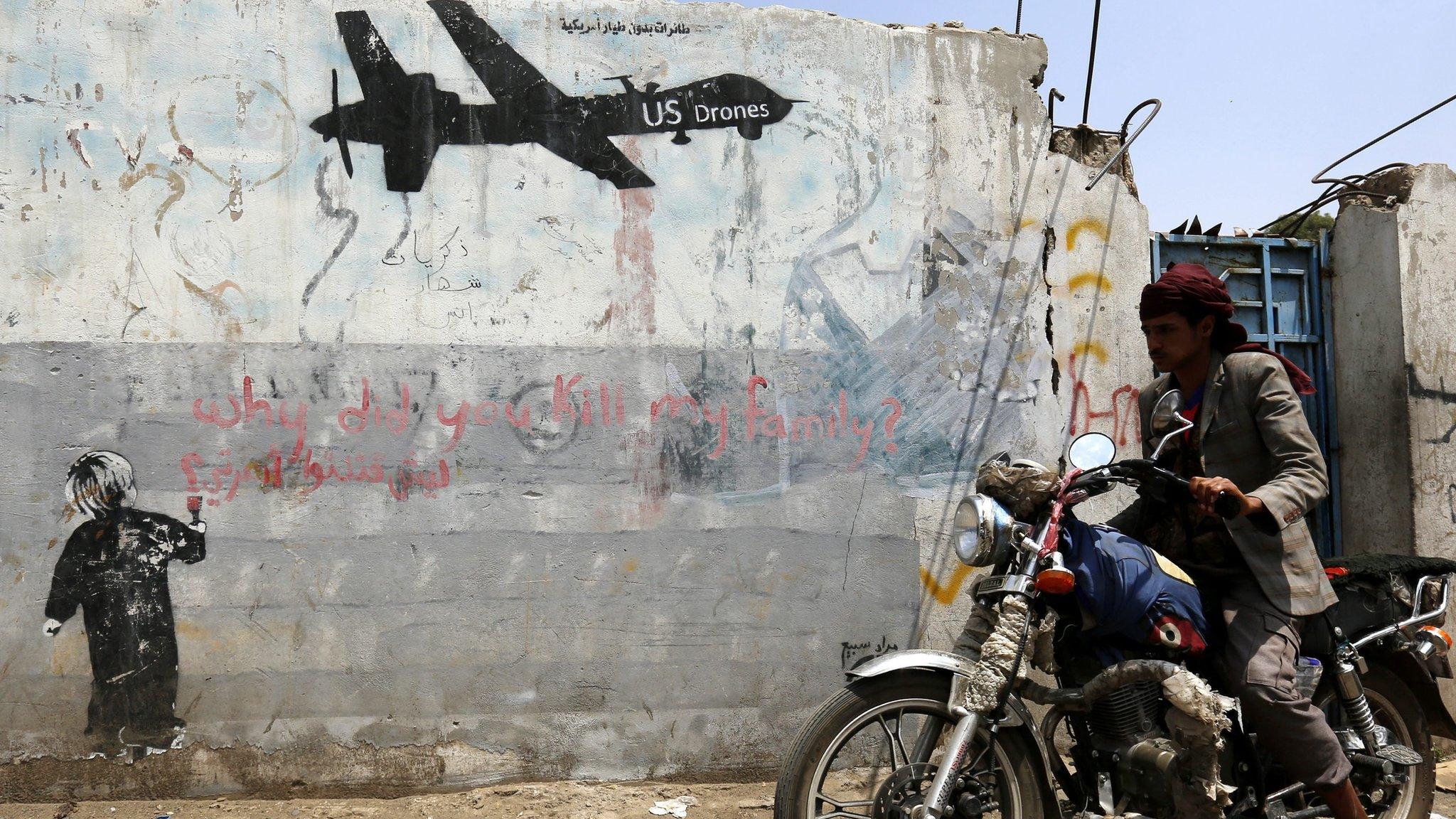
- Published30 August 2016
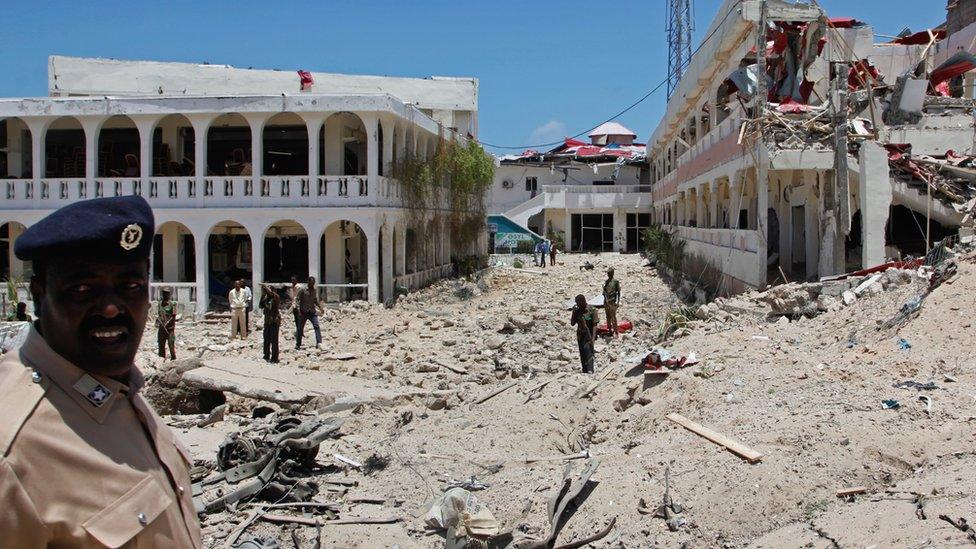
- Published27 August 2016
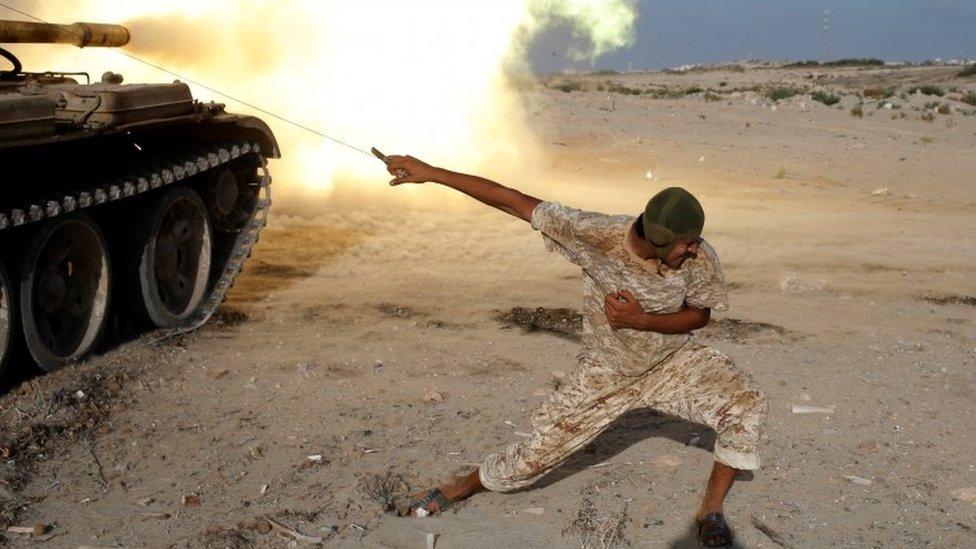
- Published29 July 2016

- Published6 April 2016
